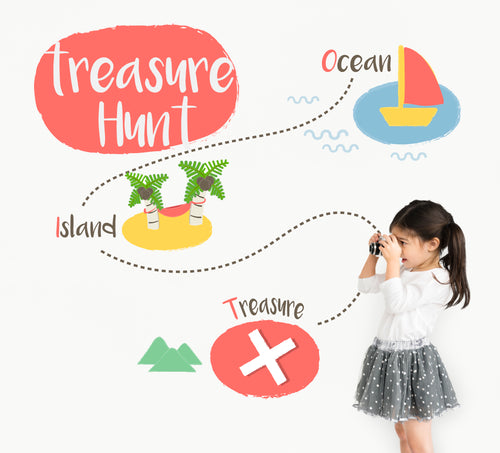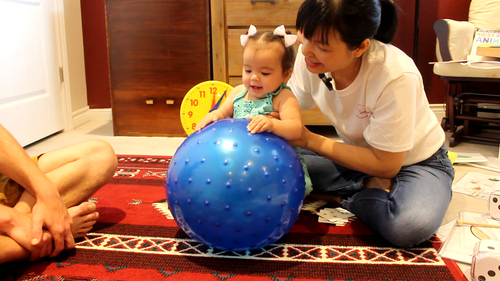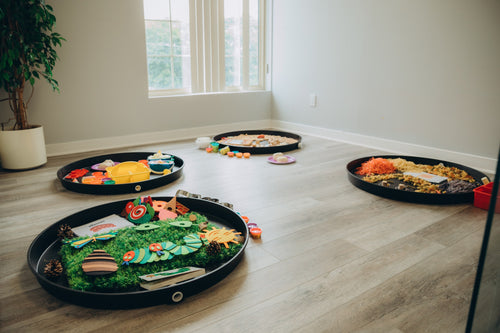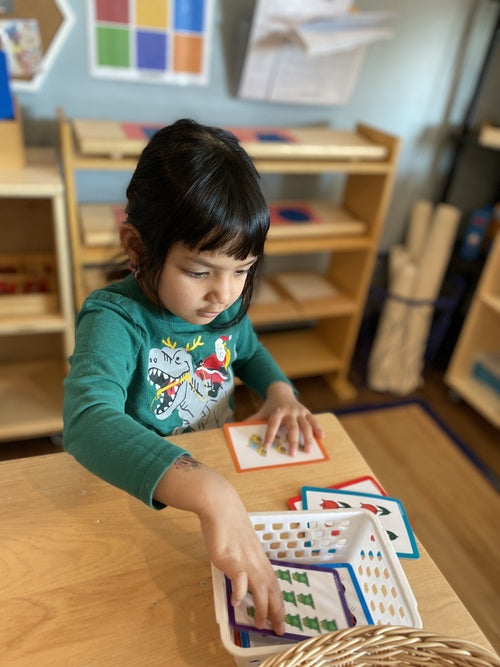Music plays a vital role in our lives, and its impact on infants is especially profound. Are you looking for good music for infants’ brain development? In this article, we’ll explore the stages of infants’ brain development, how music can benefit these stages, and offer a list of the best types of music for your little one, along with where to find them.
Stages of Infants’ Brain Development
To truly appreciate the benefits of music, it's important to understand the stages of your baby’s brain development. The first few years are a time of rapid growth, with key milestones that shape cognitive, emotional, and social abilities.
1. Newborn to 3 Months: Laying the Foundation
In these early months, your baby’s brain is incredibly receptive to stimuli, quickly forming neural connections. Sounds, including music, play a significant role in shaping brain architecture. At this stage, introducing your baby to calming music can help create a nurturing environment that supports language development and emotional bonding.
2. 4 to 6 Months: Sensory Integration
As your baby grows, their brain starts to integrate information from different senses. Music that features rhythmic patterns, melodies, and harmonies can enhance this sensory integration. It can also encourage early motor skills, as your baby may respond to the rhythm with small movements like kicking or waving their arms.
3. 7 to 12 Months: Language and Emotional Development
By the second half of their first year, your baby’s brain is becoming more active in the areas that support language. Music, particularly songs with repetitive patterns and clear lyrics, can boost language learning. Music also helps with emotional regulation, providing comfort and security as your baby navigates this critical period of growth.
4. 12 to 24 Months: Boosting Cognitive and Motor Skills
As your toddler approaches their second birthday, their brain is busy developing higher cognitive functions and refining motor skills. Interactive music activities, like clapping or dancing, are fantastic for supporting both intellectual growth and physical coordination.
Want to learn more about Child Development Milestones of Infants please click here

How Music Affects Infants’ Brain Development
Music does much more than just entertain your baby; it plays a vital role in their brain development. You may notice how your baby reacts differently to various types of music, and these responses are more than just curiosity—music truly has a positive impact on their brain growth. Here's how:
1. Building Neural Connections
Music stimulates the creation of new neural pathways in the brain. The complex structures found in music, like melody, rhythm, and harmony, require the brain to process multiple layers of information at once. This activity strengthens neural connections and enhances overall brain function.
2. Supporting Language Development
The rhythm and melody in music mimic the patterns of speech, making it easier for babies to pick up on the nuances of language. Listening to music can improve phonetic awareness, helping babies distinguish between different sounds, which is key to language acquisition.
Explore our language courses for your kids here: Mandarin - French - Spanish
3. Regulating Emotions
Music has a unique ability to influence emotions. For infants, soothing melodies can create a sense of calm and security, while more upbeat tunes can energize and uplift their spirits. This emotional engagement is crucial for developing a healthy emotional foundation.
4. Enhancing Memory and Learning
Repetition in music can significantly improve memory retention. Babies often remember tunes and rhythms they hear frequently, which can support learning in other areas, such as recognizing patterns, sequences, and even early math skills.
Top 5 Music for Infants’ Brain Development
Choosing the right type of music is essential for maximizing its benefits on your baby’s brain development. Here are some recommendations:
1. Classical Music
Classical music, especially compositions by Mozart, Beethoven, and Bach, is known for its intricate structures and soothing melodies. Research suggests that classical music can enhance spatial-temporal reasoning and improve memory in infants.
Examples:
- Mozart’s Piano Sonatas
- Beethoven’s Symphony No. 6
- Bach’s Brandenburg Concertos.
2. Lullabies
Lullabies are timeless and have been used for generations to calm and soothe babies. These simple, repetitive melodies are perfect for bedtime, helping to regulate sleep patterns and reduce anxiety.
Examples:
- Twinkle, Twinkle, Little Star
- Hush Little Baby
- Brahms’ Lullaby
3. Nature Sounds with Music
Combining natural sounds like flowing water or bird songs with soft music can create a peaceful environment that promotes relaxation and sensory awareness.
Examples: Albums like:
- Baby Sleep Music: Nature Sounds with Soft Music
- Peaceful Ocean Waves with Gentle Music.
4. Interactive Nursery Rhymes
Nursery rhymes that encourage movement or actions are great for engaging your baby with the music. This interaction can enhance motor skills and support language development.
Examples:
- The Wheels on the Bus
- If You’re Happy and You Know It
- Head, Shoulders, Knees, and Toes
5. World Music
Exposing your baby to music from different cultures can broaden their auditory experience and support cognitive flexibility. World music often includes unique instruments and rhythms that stimulate various parts of the brain.
Examples: African lullabies, Latin American folk songs, or Indian classical music.

Where to find quality Music for Infants’ Brain Development
Finding the right music for your baby’s brain development is easy with the variety of resources available today. Here are some options:
1. Streaming Services
Platforms like Spotify, Apple Music, and Amazon Music offer curated playlists specifically designed for babies and toddlers. You can search for playlists using keywords like “baby brain development,” “infant classical music,” or “lullabies” to find suitable options.
2. YouTube Channels
YouTube has many channels dedicated to baby music. Channels like Baby Relax Channel, Super Simple Songs, and Cocomelon provide a mix of soothing melodies, nursery rhymes, and interactive songs.
3. Apps
Apps like Calm Baby and Baby Mozart offer a range of music specifically designed to support your baby’s brain development. These apps often come with features like timers, so the music can play during naps or bedtime.
4. CDs and Digital Downloads
For those who prefer offline options, you can find CDs or digital downloads of baby music collections on websites like Amazon or iTunes. Look for titles like Baby Einstein: Classical Music Collection or Rockabye Baby! Lullaby Renditions.
Music for infants’ brain development is more than just a form of entertainment; it’s a powerful tool that can significantly influence their cognitive, emotional, and physical growth. By understanding the stages of brain development and selecting the right music, you can create a nurturing environment that supports your baby’s overall well-being. Whether it’s classical music, soothing lullabies, or interactive nursery rhymes, the right music can lay a strong foundation for a lifetime of learning and happiness.
Hope you found the information in this article helpful as you explore the benefits of music for your baby’s brain development. At Smartizen, we’re dedicated to nurturing young minds, and our music sessions are thoughtfully designed to do just that. Our classes feature a variety of musical activities that stimulate cognitive growth, promote whole-brain development, and foster emotional well-being in children aged 6 months to 6 years. If you're interested, don’t hesitate to book a free trial class with us. Let your child embark on an exciting journey to explore their full potential with us.








